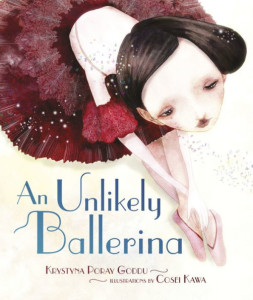The Lilith Blog
August 23, 2018 by Tara Mendola
Bloody Waters at the Mikveh
The tablecloths in this palatial Newton synagogue are all Tiffany blue, as are the event programs and the lanyards for our nametags, which have High Holiday-style fundraiser cards on the back. My nametag is as expected. My companion S’s, however, lists the name and title of a Baptist preacher, a woman who runs an abortion outreach group funded by Planned Parenthood. This woman had invited me to be her date to this shindig weeks before—presumably as she didn’t want to be the lone Christian clergyperson at a mikveh fundraising gala without a Jewish wingwoman—but had succumbed to a late-spring cold at the eleventh hour. S., magnanimously, agreed to come with me instead.
“Come on,” I’d said to my friend S, “It’s a mikveh gala with circus arts. It cannot possibly be boring.”
“Alright,” she’d said, grimly, “but I am not changing and I am not putting on heels. It’s 6PM on Thursday; that’s a time for people with nannies.”
- No Comments
August 23, 2018 by Nylah Burton
Googling Won’t Solve My Abandonment Issues—But I Can’t Stop

When it comes to healthy relationships, sometimes I think my parents screwed me out of any chance I may have had at one.
My parents and I stopped speaking when I was 20. It had been a slow-build up, a growing rift, and then suddenly one day… I just didn’t have parents anymore. This isn’t an exaggeration: my mom called the police on me when I showed up to my childhood home. Today, she still forbids me and my grandparents –with whom I remain close—from seeing my siblings. As for my father, he once told me I deserved to be abused by her.
- 1 Comment
August 22, 2018 by Jordana Horn
Why Deporting an (Actual) Nazi Feels Hollow in the Age of Charlottesville
Under the heading of “better late than never!” the last known Nazi war criminal, the 95 year old Jakiw Palij, has been arrested at his Queens home by ICE and deported to Germany. It’s justice done, yet in this summer of fear and anger, it feels hollow to focus on the past without looking at the present.
According to a press release from the State Department, Palij served as an armed guard at the Trawniki slave-labor camp for Jews in Nazi-occupied Poland during the second World War. He concealed his Nazi service when he immigrated to the United States from Germany in 1949. A federal court stripped Palij of his citizenship in 2003 and a U.S. immigration judge ordered him removed from the United States in 2004 based on his wartime activities and postwar immigration fraud. A careful reader will notice that that was 14 years ago. So, nu?
- 2 Comments
August 22, 2018 by Sharrona Pearl
When a Queer Feminist Professor is Accused of Harassment
 We defend our friends. It’s natural. It’s powerful. It’s what friendship is all about. Certainly Avital Ronell’s friends— the most powerful philosophers in academe, for what it’s worth—wanted to defend her from the recently revealed allegations that she’d sexually harassed one of her male graduate students. The Title IX complaint by Nimrod Reitman resulted in her year-long suspension from NYU.
We defend our friends. It’s natural. It’s powerful. It’s what friendship is all about. Certainly Avital Ronell’s friends— the most powerful philosophers in academe, for what it’s worth—wanted to defend her from the recently revealed allegations that she’d sexually harassed one of her male graduate students. The Title IX complaint by Nimrod Reitman resulted in her year-long suspension from NYU.
But she had high-profile defenders in the feminist world. Judith Butler. Slavoj Žižek. Gayatri Chakravorty Spivak. Shoshana Felman. These are just a few of the famous progressive scholars who lept to her defense in a widely circulated letter excerpted in the New York Times. Presumably without all the facts, they chose to attack the survivor. That’s certainly not a surprise, human behavior being what it is.
But to be honest, as an academic, I expected more. From the most revered names in the humanities, people who would be expected to make conclusions based on evidence in the name of social justice, I expected more.
- 2 Comments
August 21, 2018 by Yona Zeldis McDonough
A Female Friendship From the Catskills to the Wider World
 When Bess and Frima―both 19, best friends, and from the same Jewish background in the Bronx―get summer jobs in upstate hotels near Monticello, NY, in June 1940, they each have dreams of love, but love means something different to each of them. Frima seeks safety and finds it with Bess’s brother Jack. Rebellious Bess renames herself Beth and plunges into a new life with Vinny, an Italian American, former Catholic, left-wing labor leader from San Francisco. Her actions are totally unacceptable to her parents―which is fine with Beth, who is eager to reinvent herself outside the tight and suffocating bonds of family.
When Bess and Frima―both 19, best friends, and from the same Jewish background in the Bronx―get summer jobs in upstate hotels near Monticello, NY, in June 1940, they each have dreams of love, but love means something different to each of them. Frima seeks safety and finds it with Bess’s brother Jack. Rebellious Bess renames herself Beth and plunges into a new life with Vinny, an Italian American, former Catholic, left-wing labor leader from San Francisco. Her actions are totally unacceptable to her parents―which is fine with Beth, who is eager to reinvent herself outside the tight and suffocating bonds of family.
As Alice Rosenthal’s novel of friendship, Bess and Frima, unfolds, the menace of world war is growing, and Beth and Frima must grow up fast. Balancing love, ambition, religion, family, and politics, each young woman faces challenges she never imagined in her girlhood. Fiction Editor Yona Zeldis McDonough talks to author Alice Rosenthal about the personal history she mined to write this tender story.
- No Comments
August 21, 2018 by Sarah M. Seltzer
The Patriarchy-Free Paradise of “Mamma Mia!”
 This piece contains spoilers for Mamma Mia 2: Here We Go Again. Not a spoiler: you’ll laugh, you’ll cry, you’ll dance poorly to ABBA.
This piece contains spoilers for Mamma Mia 2: Here We Go Again. Not a spoiler: you’ll laugh, you’ll cry, you’ll dance poorly to ABBA.
Ten years ago I wandered into a movie theater on a hot summer weekend and was surprised to fall in love with the bell bottoms and thudding beat of ABBA-musical-turned-Meryl Streep vehicle “Mamma Mia!”. At the time, I was especially charmed to discover the “feminist heart beneath its cheesy 70s kitsch exterior”—given that the movie hinges on woman’s freewheeling sexual past without shaming her for it.
A lot has changed in a decade; whereas the original “Mamma Mia!” passed skeptical critics by, only to become a smash hit with audiences, its long-awaited sequel now flows into the culture with the natural ease of olive oil in a Greek dish. In the era of female-driven shows like “Crazy Ex-Girlfriend” and “Jane the Virgin” that combine elements of camp, fantasy and genre with sensitive exploration of women’s lives, viewers are primed to enjoy this kind of entertainment unironically, while a more open-minded group of critics are bolstering their pleasure with praise.
- No Comments
August 20, 2018 by JoAnn Abraham
#MeToo, The Supreme Court, and Immigration Cruelty: Connected by Misogyny
At this summer’s ESPY, Excellence in Sports Performance Yearly, awards, the 141 survivors of sexual abuse by Dr. Larry Nassar (one of them was Olympian Aly Raisman) received a standing ovation. These women athletes had suffered for decades in silence, shamed into believing that they were at fault, or that what the doctor was doing was all right. They weren’t, and it wasn’t.
As the future of Roe v. Wade seems to waver, I thought about how, in this day and age, these young women weren’t even sure they had the right to determine when and by whom they could be touched. Only in the months since #MeToo did that change.
- 1 Comment
August 17, 2018 by Kathryn Ruth Bloom
Edna Ferber, Fannie Hurst and Their Cult Classic Jewish Novels
In their heyday during the 1920s and 1930s, Edna Ferber and Fannie Hurst enjoyed tremendous popularity but fell into relative obscurity soon after their deaths in 1968. With a decidedly Jewish sensibility, both of these women tell stories to inspire compassion and empathy about social issues–from body image to opioid abuse, from women’s roles to racism and the treatment of immigrants–startlingly relevant today.
Ferber and Hurst were very different kinds of writers, but their lives overlapped in surprising ways. Both were born in 1885 and grew up in assimilated Jewish families in the American Midwest. Both moved to Manhattan in their twenties to pursue their writing careers. Each was one of two daughters; ironically––or oddly, given their other coincidental pairings––Ferber’s older sister was named Fannie and Hurst’s little sister, who died as a child, was named Edna. Ferber didn’t marry and Hurst and her husband famously maintained separate residences throughout their marriage, giving rise to the expression “a Fannie Hurst marriage.” Neither had children. Both published dozens of well-received novels, short stories, memoirs, plays, and magazine articles that brought important social and cultural issues to the attention of their readers. But in light of today’s excellent fiction by American Jewish women that serves a similar purpose, why am I convinced that people will continue to enjoy and identify with their narratives?
- No Comments
August 15, 2018 by Yona Zeldis McDonough
The Book That Teaches Children About a Jewish Prima Ballerina

Young Lily Marks loves to stand on her tiptoes. When her parents notice there’s weakness in her legs, her doctor suggests dancing lessons to strengthen them, and Lily falls in love with ballet. But can this fragile girl ever become a serious dancer? When the famous ballerina Anna Pavlova comes to town, Lily just has to meet her. Maybe Pavlova—small, delicate, and Jewish like Lily—holds the key to Lily’s future. Fiction Editor (and lifelong balletomane) Yona Zeldis McDonough talks to author Krystyna Poray Goddu about her informative and charming new picture book.
- No Comments
August 10, 2018 by Talia Lang
Five Quotes That Will Increase Your Chutzpah
From the JAP to zaftig to the belle juive, there are no end of Jewish stereotypes. Chutzpadik is probably one of the least painful, and incidentally one of the most gender-neutral. Here are 5 quotes from Jewish women, words that embody chutzpah in its most inspiring and hopeful forms.
“I’ve been described as a tough and noisy woman, a prize fighter, a man-hater, you name it. They call me Battling Bella, Mother Courage, and a Jewish mother with more complaints than Portnoy. There are those who say I’m impatient, impetuous, uppity, rude, profane, brash, and overbearing. Whether I’m any of those things, or all of them, you can decide for yourself. But whatever I am —and this ought to be made very clear—I am a very serious woman.” – Bella Abzug
- No Comments
 Please wait...
Please wait...